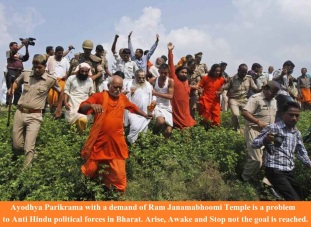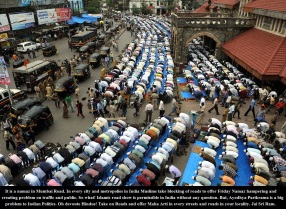While the Court of Appeal last Friday detailed the non-calling of
Najib Abdul Razak's aide-de-camp DSP Musa Safri as a factor in
acquitting the two Special Action Unit officers, the written judgment
also states that the second accused, Sirul Azhar Umar, could have been
framed.
Sirul Azhar in his
testimony from the dock had described how he had been made "a scapegoat" by the police, to be sacrificed in order to protect their plans.

In
the written judgment released today, Court of Appeal judge Tengku
Maimum Tuan Mat described why it was unsafe to accept the evidence from
the police officers who went to Sirul Azhar's Kota Damansara home.
"There
is thus a conflicting and inconclusive account of events as regards the
discovery of the black jacket and (Altantuya Shaariibuu's jewellery).
There is also no conclusive account of what exactly was said by Sirul as
regards the jacket.
Justice Tengku Maimum said according to one
of the police witnesses, ASP Zulkarnain Hassan, Sirul Azhar had told him
he kept the items (jewellery) in the jacket, but the testimony of
another officer did not disclose any such statement being made.
The
judge said Sirul Azhar had contended that one of the police officers,
who said the jewellery was kept in the black jacket, had asked the
accused (Sirul Azhar) to hold the jacket for the purpose of him being
photographed with it, twice.
"The same officer took out some
items from inside the same jacket and placed them on the bed before
forcing him (Sirul Azhar) to point, by his finger, at all those items
again for his pictures to be taken.
"The second appellant is thus
saying that the police had planted the jewellery in his house. Relevant
to this issue is the fact that the keys to the house were in the
possession of the police prior to the search for the black jacket from
inside the unlocked cupboard in Sirul's unlocked room," Justice Tengku
Maimum said.
Chief Inspector Azilah Hadri and Sirul Azhar were
discharged and acquitted last Friday, after the Court of Appeal ruled there were serious misdirections by the court.
The
appellate court also contrasted the evidence of Zulkarnain and the
other officer who were in Sirul Azhar’s house and noted conflicting and
inconclusive accounts of events with regard to the discovery of the
black jacket and jewellery.
Justice Tengku Maimun said the
trial-within-a-trial version conducted to determine this supported Sirul
Azhar’s version that it was Zulkarnain who had directed him to show the
items.
Conflicting police reportsThe
court also noted that Zulkarnain had interviewed Sirul Azhar prior to
going to his house but what puzzled the court was why Zulkarnain had his
own particulars wrong when lodging the police report on the
interrogation.
“This is followed by another police report
tendered by Sirul Azhar’s defence, purportedly by Zulkarnain with his
name spelt wrongly, along with his date of birth wrongly stated and his
rank as Chief Inspector (and not ASP).”
The two police reports had different versions and this, the court found, led to discrepancies.

Similarly,
with the evidence on Azilah purportedly leading them to the crime scene
in Puncak Alam, the court found it was unsafe to accept the testimonies
of the police witnesses.
This follows the contradictory account
where one police officer claimed Azilah had shown the crime scene where
Altantuya was blown up, and the place where she was first shot.
However,
another officer contradicted the testimony, claiming Azilah had shown
the place where Altantuya was first shot. In addition, an officer
claimed he had informed his superior officer about the crime scene
discovery by calling him on the handphone. However, the superior said he
had not received such a call from his subordinate.
“We find
there is a non-direction by the learned trial judge in failing to
evaluate the evidence before admitting the police statements
(testimonies),” ruled Justice Tengku Maimun.
Blood-stained slippers planted?Similarly
with the blood-stained slippers found in Sirul Azhar’s car, the court
said the accused left his car keys with one Sergeant Rosli as the
accused was on overseas assignment, in Pakistan.
“Sergeant Rosli
had testified that he had not seen the (blood-stained) slippers when he
started Sirul Azhar’s car twice. What was important that Sergeant Rosli
had also testified that one DSP Mohd Khairi Khairuddin had asked for
Sirul’s car keys for some unknown reason and Khairi handed the keys back
to him three days later,” he said.
The court noted that Khairi
was not called by the prosecution to testify and hence there was no
evidence as to what happened in the car while it was under that
officer’s custody.
Non-calling of Musa SafriAttorney-general Abdul Gani Patail had defended the non-calling of Musa as
irrelevant.
Justice
Tengku Maimun said the court could not accept the prosecution’s logic
on the non-calling of Musa, as political analyst Abdul Razak Baginda was
jointly tried with Azilah and Sirul Azhar from the outset and it was
the prosecution’s case that Abdul Razak had conspired with the two
policemen to commit murder.

“Hence
it is incumbent upon the prosecution to adduce all available, relevant
evidence against the third accused. The affidavit by Abdul Razak, which
has been taken by the learned trial judge to be part of the
prosecution’s evidence, contains prejudicial matters against the
appellants and it tends to suggest the guilt of the appellants.
“In
fact, since Abdul Razak was acquitted and discharged with no appeal
lodged by the prosecution, it appears that whatever the appellants did
in committing the crime was entirely on their own accord.”
Justice
Tengku Maimun said it must not be overlooked that “this ugly and
horrendous episode” started with Abdul Razak’s request to Musa, before
the two accused came into the picture.
“The evidence established
that the appellants’ task was to patrol Abdul Razak’s house and their
presence on Oct 19, 2006, was upon the request for such assistance from
the political analyst to Azilah.
“The trial judge is bound to
view the whole of the evidence objectively and from all angles in
finding whether the evidence or the facts point to the irresistible
inference and conclusion that both the appellants committed this crime
or whether there are some other reasonably possible explanation of those
facts.
“Now that the task of patrolling the house had ended with
murder, we agree with Sirul Azhar’s lawyers that only Musa can confirm
the scope of the request,” the judge ruled.
The court in its
judgment found that circumstantial evidence was insufficient and not
strong enough to sustain the finding of guilt.
“We are conscious
that a heinous crime has been committed but where the guilt of the
appellants had not been satisfactorily proved, we are constrained to
give the benefit of the doubt to the appellants,” she said in ending the
47-page judgment.
 PETALING JAYA: The alarming figure that 71 percent of gang members are Indians, has sent the Youth and Sports Ministry scrambling to come up with ways to arrest the numbers and eradicate the problem.
PETALING JAYA: The alarming figure that 71 percent of gang members are Indians, has sent the Youth and Sports Ministry scrambling to come up with ways to arrest the numbers and eradicate the problem.

 "Delivering
on promises of the government to ensure that Indians no longer feel
marginalised is more important than a merger," Jaspal (left), who is also MIC treasurer, told Malaysiakini today.
"Delivering
on promises of the government to ensure that Indians no longer feel
marginalised is more important than a merger," Jaspal (left), who is also MIC treasurer, told Malaysiakini today.
 The
marketing executive, who only wished to be known as Raj, 39, claimed
his 9-year-old daughter was questioned by police officers twice within
the school compound, between July and August.
The
marketing executive, who only wished to be known as Raj, 39, claimed
his 9-year-old daughter was questioned by police officers twice within
the school compound, between July and August.
 "That
is what he is in government for. We consider these (calls by the
ministers that he quits) as just incidents along the way," Ganesan (left) told Malaysiakini.
"That
is what he is in government for. We consider these (calls by the
ministers that he quits) as just incidents along the way," Ganesan (left) told Malaysiakini. "The
process seems to be painfully slow. It is ironical that, on the one
hand we have this situation with regard to crime being addressed in a
hurried manner with these shootings and arrests, and which do not assure
sustainability anyway.
"The
process seems to be painfully slow. It is ironical that, on the one
hand we have this situation with regard to crime being addressed in a
hurried manner with these shootings and arrests, and which do not assure
sustainability anyway.




 In
the written judgment released today, Court of Appeal judge Tengku
Maimum Tuan Mat described why it was unsafe to accept the evidence from
the police officers who went to Sirul Azhar's Kota Damansara home.
In
the written judgment released today, Court of Appeal judge Tengku
Maimum Tuan Mat described why it was unsafe to accept the evidence from
the police officers who went to Sirul Azhar's Kota Damansara home. Similarly,
with the evidence on Azilah purportedly leading them to the crime scene
in Puncak Alam, the court found it was unsafe to accept the testimonies
of the police witnesses.
Similarly,
with the evidence on Azilah purportedly leading them to the crime scene
in Puncak Alam, the court found it was unsafe to accept the testimonies
of the police witnesses. “Hence
it is incumbent upon the prosecution to adduce all available, relevant
evidence against the third accused. The affidavit by Abdul Razak, which
has been taken by the learned trial judge to be part of the
prosecution’s evidence, contains prejudicial matters against the
appellants and it tends to suggest the guilt of the appellants.
“Hence
it is incumbent upon the prosecution to adduce all available, relevant
evidence against the third accused. The affidavit by Abdul Razak, which
has been taken by the learned trial judge to be part of the
prosecution’s evidence, contains prejudicial matters against the
appellants and it tends to suggest the guilt of the appellants.




